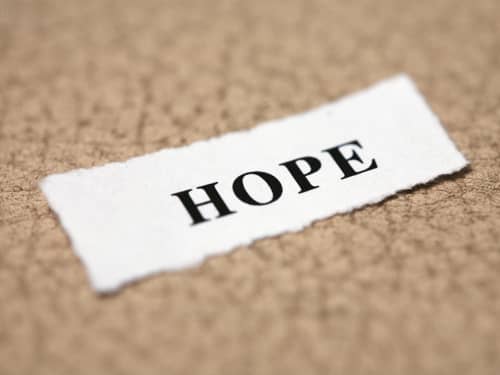I don't think my father ever picked up a cigarette. I know he never smoked one. His family never smoked, and he never liked to be around smoke.
My dad liked baseball and the Beatles. He was an accountant by trade, but far preferred spending his time playing golf, relaxing with his family, or lying on a Caribbean beach. He cared deeply about the people around him--and they, in turn, cared deeply for him.
Last June, my father died at the age of 56 after a nearly two-year battle with lung cancer. His story challenges the very fundamental perceptions people have of lung cancer patients.
Indeed, people always seem so surprised. How is it possible, they ask, that he never smoked? The answer, of course: It is possible. More than 10 percent of all lung cancer patients never smoked--and that percentage is rising.
But my question is: Why does it matter? Why did so many people, upon my dad's diagnosis, first ask whether he smoked, instead of how he was feeling or how he was being treated or even how they could help? Why did it seem that so many people wanted to place blame for a disease for which there is no blame?
It's simple: We're all scared. Lung cancer is a beast that's awfully hard to beat, and if we think there's a way to control it, that makes us feel so much better. Phew, we think, at least we can avoid that one.
But it's not that easy. Earlier this month, Dana Reeve, a 44-year-old non-smoker and widow of actor Christopher Reeve, made public her own ongoing battle with lung cancer. The world--and even some of my own friends and family--seemed so surprised. But more and more lung cancer cases are now diagnosed in those who have never smoked--both men and women. Indeed, any of us could be diagnosed with lung cancer. It's a terribly frightening illness, working quickly to literally snatch away your every breath--often before you even know it's there.
And yet, a troubling stigma remains. That stigma makes the toughest of battles even tougher. Patients, survivors and family members, like me, end up defending themselves and their loved ones at a time when they should be wrapped with unconditional support and love. Throughout my father's bout with lung cancer, I was constantly reminded that his illness was "a smoker's disease." All the literature I read, all the news clippings I saw and all the television advertisements bombarded the public with a single message: Don't smoke--and you won't get lung cancer. I wanted to yell, "Tell that to my father!"
Lung cancer is treated like the "ugly stepsister of cancer advocacy"
Read more >>
| _Related Features | |
|
|
 |
My dad, however, fought lung cancer as hard as he could, through surgery and chemotherapy, and more surgery and more chemotherapy and then radiation. He tried a relatively new drug towards the end, which didn't work, and spent his last month at home, surrounded by friends and family.
He left behind a wife, a sister, two children, and a granddaughter, my daughter--who at the time was less than four months old.
Together, we tried everything. But I find it incredibly sad to think about what the doctors might have done for him if they had the research dollars lung cancer so rightfully deserves, but is so often denied. Lung cancer is the deadliest of all cancers, and it lacks the early screening and life-saving treatments patients so desperately need. The newest lung cancer drugs, which have been lauded for their success, increase life expectancy by just a couple of months on average.
The National Cancer Institute spent about $1,740 per lung cancer death in 2003, compared with $13,649 per breast cancer death.
Think about that.
Although the NCI has recently committed new funding to lung cancer, partly in light of the recent news about Reeve and ABC anchor Peter Jennings, lung cancer remains the ugly stepsister of cancer advocacy--hidden away in an attic, without attention or care.
So, now, it's up to us--the survivors, the caregivers, the friends and relatives, and anyone else who is willing to take up the fight. I was always my daddy's little girl, even after I had a home and family of my own. Now, I need to walk forward without him – and that's an incredibly difficult road. But with every step I take, I can hope there may be one fewer daughter who has to live without her father, and one more granddaughter who can grow up to know her grandfather.
Smoker or not, no one deserves to get lung cancer. But anyone can. Once we realize that, maybe, just maybe, lung cancer survivors will get the attention, care and respect they do deserve. Then, perhaps, the funding, the screening, the treatments and even a cure, will follow.

